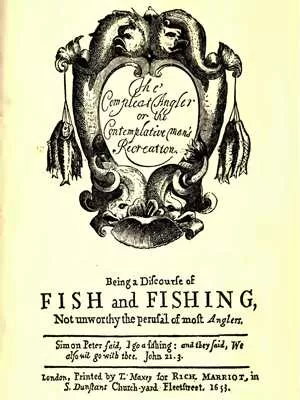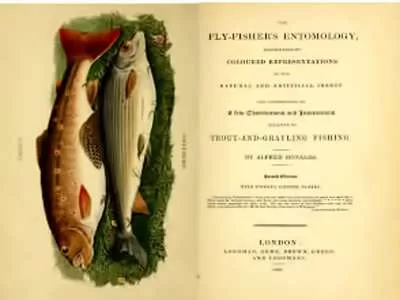For those who grew up in Britain, the name J.R. Hartley evokes a nostalgic smile, thanks to a famous TV advert that aired in the early 1980s. But what started as a clever marketing campaign for the Yellow Pages quickly became a phenomenon, turning a fictional character into a beloved figure and spawning an actual bestseller.
This is the story of how J.R. Hartley went from a made-up name to a literary legend in the world of angling.
The Birth of J.R. Hartley: A Marketing Masterstroke
The tale begins with a charming television advert for the Yellow Pages, featuring an elderly gentleman searching for a rare book, Fly Fishing by J.R. Hartley. After fruitlessly visiting several second-hand bookshops, he returns home disheartened. His daughter hands him the Yellow Pages, and soon enough, he’s on the phone, smiling as he finally finds the book. “My name? Oh yes, it’s J.R. Hartley,” he says, cementing the name in viewers’ minds.

The advert was a hit, resonating with the public in a way few commercials do. People began to ask for Fly Fishing by J.R. Hartley in bookstores, not realizing the book didn’t exist. Sensing an opportunity, British publishers quickly commissioned a book to be written under Hartley’s pseudonym. Michael Russell, a genuine fly-fishing enthusiast, took on the task, and the result was a surprisingly well-crafted guide to the sport.
The Unexpected Bestseller
The book, released in 1991, was an instant success, selling over 130,000 copies. It wasn’t just a novelty item; it was a genuinely informative and enjoyable read, thanks to Russell’s expertise. The success of Fly Fishing by J.R. Hartley led to a sequel, J.R. Hartley Casts Again: More Memories of Angling Days, which also performed well.

The phenomenon didn’t stop there. In 1994, playing off Hartley’s fictional life, a third book was released, Golfing with J.R. Hartley, after the character supposedly took up golf on his doctor’s advice. By this point, J.R. Hartley had become more than just a character—he was a symbol of a gentler, more nostalgic time in British culture.
The Real Star: Norman Lumsden
The man behind J.R. Hartley’s persona, actor Norman Lumsden, was as beloved as the character he portrayed. A classically trained opera singer, Lumsden didn’t take up fishing until he was 85 years old. When he passed away in 2001 at the age of 95, the original Yellow Pages advert was rebroadcast as a tribute to him, solidifying its status as one of the most iconic adverts in British history.
A Rich History of Angling Literature
J.R. Hartley’s story is a modern addition to a long tradition of angling literature. The earliest book on fishing in English, A Treatyse of Fysshynge wyth an Angle, was written by Dame Juliana Berners and printed in 1496. This practical guide has influenced countless works, including Isaak Walton’s The Compleat Angler (1653), the most famous book on the subject, known for its blend of practical advice, anecdotes, and verse.
In the 19th century, Alfred Ronalds’ The Fly-fisher’s Entomology (1836) set a new standard in fly-fishing literature, introducing the idea of imitating the specific insects found in fishing locations. His work remains a definitive guide to this day.
Conclusion: The Enduring Legacy of J.R. Hartley
The story of J.R. Hartley is a testament to the power of storytelling and the enduring appeal of angling. What began as a fictional name in a television advert has become a cherished part of British culture, bridging the gap between marketing and literary history. Today, Fly Fishing by J.R. Hartley stands as a reminder that sometimes, fiction can create its own reality.

